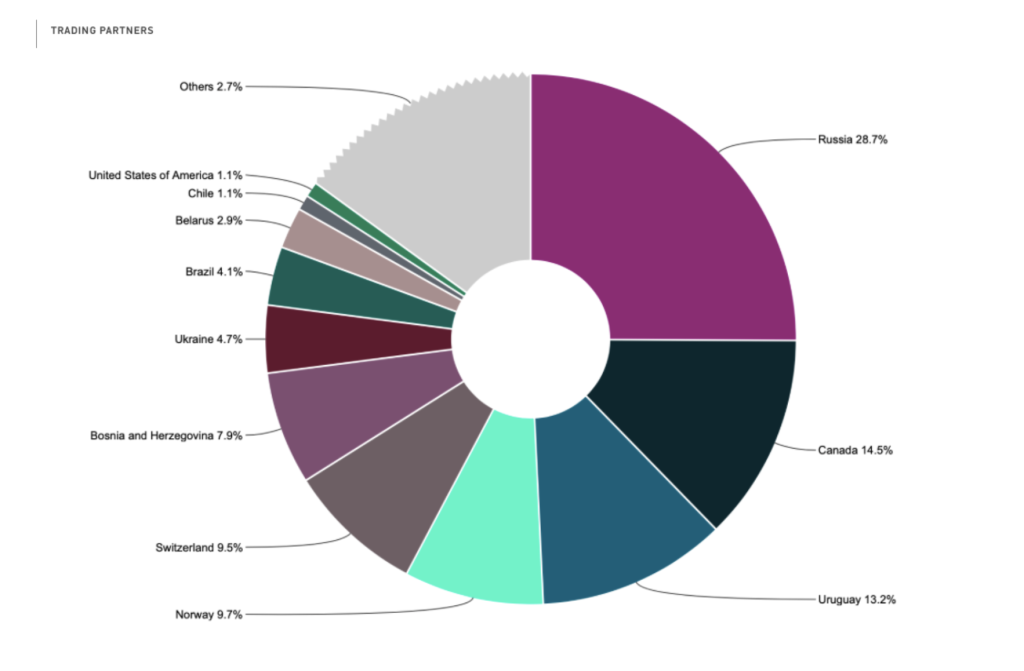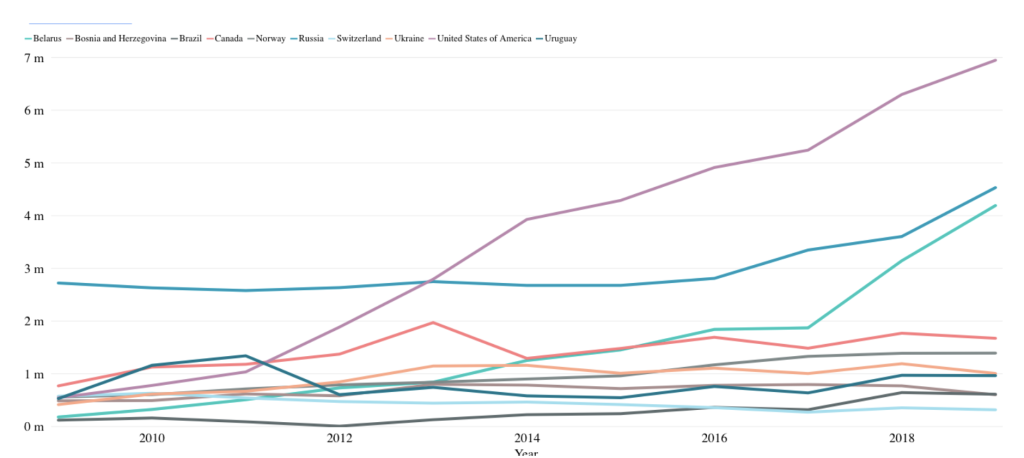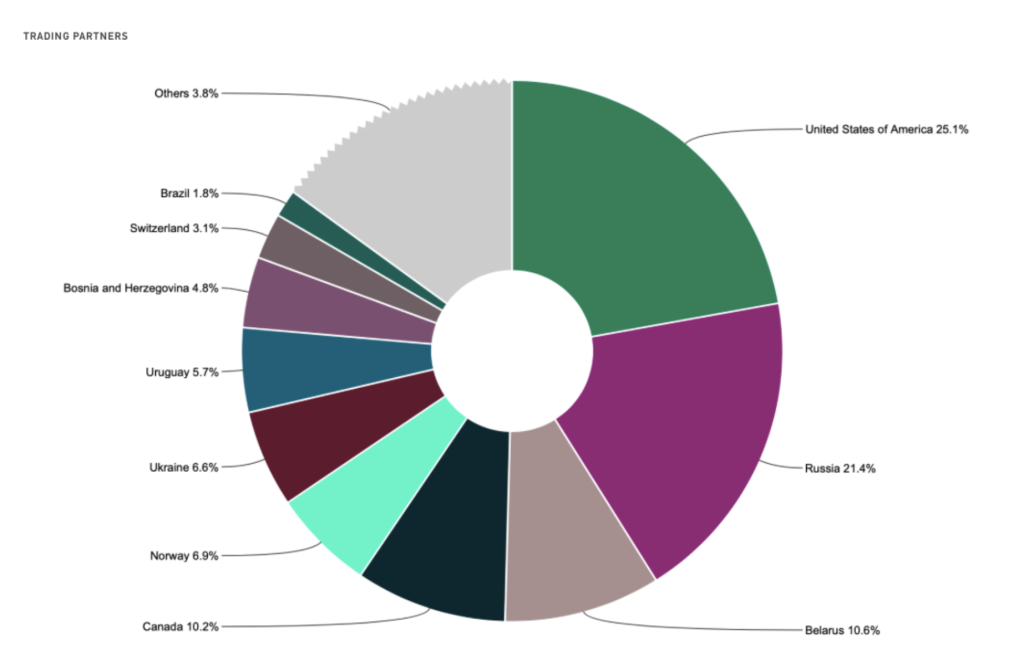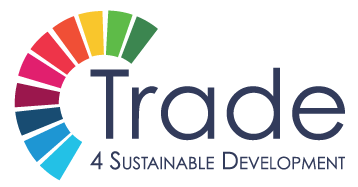Zoltan Kun
Trade is a central factor in shaping not only global, but also regional and local development. Trade policies and agreements have a very important influence on achieving the UN Sustainable Development Goals (SDGs). The assumption of Trade4SD project is that trade has the power to produce positive outcomes when the policies which define the rules of the game are framed and designed in a way to promote access to markets, fair prices and standards of living for farmers.
However, addressing the relation between trade and SDGs requires an integrated approach to policy-making that takes a holistic approach. With this short blogpost, I would like to call the attention to trading a commodity between the EU and USA – fuelwood chips and waste – that is largely influenced not by a trade agreement but another policy.
Despite the US being the EU’s largest trading partner, there is no dedicated free trade agreement between the EU and the US. The Transatlantic Trade and Investment Partnership (TTIP) negotiations were launched in 2013, but ended without conclusion at the end of 2016. The negotiations were finally formally closed in 2019 after being considered obsolete.
Despite of the lack of trade agreement the EU import of fuelwood chips and waste from the USA skyrocketed after 2009. The policy which influenced the increase of trade of this particular commodity is the Renewable Energy Directive which was adopted in 2009.
The USA was not among the TOP10 trade partner of the EU between the period of 2006 and 2008 (see figure 1). The adoption of the Renewable Energy Directive resulted a big change in the liberal US market. The USA turned to be the largest external trading partner of fuelwood of the EU between the period of 2009 and 2019 (see figure 2). One fourth of the fuelwood import came from the USA in this period (see figure 3)

Figure 1: External fuelwood chips and waste trade partners of the EU28 between 2006 and 2008 (Source EU Timber Trade dashboard, UNEP-WCMC)

Figure 2: The changes in external trading relations. The US became the biggest exporter of fuelwood chips and waste to the EU in 2013

Figure 3: External fuelwood chips and waste trade partners of the EU28 between 2009 and 2019 (Source EU Timber Trade dashboard, UNEP-WCMC)
Why is this a problem? Several reports suggest that increasing logging leads to forest degradation in various parts of the USA. According to Moomaw and Smith (2017) the US South has become the world’s largest exporter of wood pellets to Europe just in the past several years. This new market is driving increased logging also in ecologically important forests and eventually leads to turning natural forests into tree monoculture plantations. According to the datasets of Global Forest Watch, the USA had 252Mha of natural forest in 2010, covering over 29% of its land area. The country lost 1.71Mha of natural forest by 2021, which is the equivalent to 775Mt of CO₂ emissions.
Why is this significant for the Trade4SD project? Our Deliverable 1.1. looked into the impact of trade on environmental dimension including renewable energy. Based on the literature review our team concluded that some negative linkages might be defined regarding the relationship between agri-food trade and biofuels. Fargione et al. (2008) proposed that carbon savings from biofuels depend on the way they are produced. Compared to biofuels made from biomass waste, for instance, converting rainforests, peatlands, savannas or grasslands to produce biofuels create much more CO2 emissions than the annual GHG reductions that these biofuels would provide in displacing fossil fuels. A report from EU Joint Research Centre in 2021 on woody biomass use for energy actually suggested that the unaccounted of wood resource in the EU, which reached 13% in 2019, can largely be attributed to energy use. These practices will eventually lead to further decline in the conservation status and resilience of forest ecosystems.
Hence, we need to follow a holistic approach when assessing the impact of trade policies amongst the EU, its Member States and other countries. Sustainability safeguards must be built into our legislation. As stated in our Deliverable 1.1. “A one-size-fits-all trade policy does not exist to achieve the global sustainability agenda.”


Leave a Reply